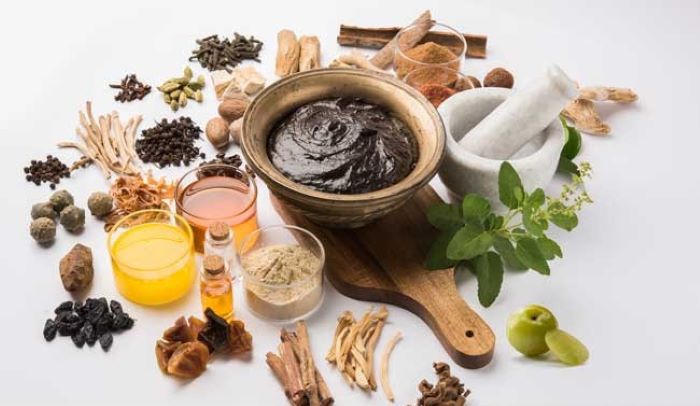
Celiac disease is an abnormality of the digestive system caused by a reaction to gluten. It is also known as an abnormal immune reaction or gluten-sensitive enteropathy. It attacks the functionality of the small intestine and causes symptoms like diarrhea, gas, bloating, growth issues, and anemia. This condition is always triggered by gluten which is found in most foods, including wheat, barley, rye, and triticale.
In celiac disease, toxins are generated as an immune response to gluten, destroying the villi. These villi are small finger-shaped protrusions found inside the small intestines. When the villi get damaged, it hinders the body from absorbing any nutrients from the food, leading to malnutrition and other severe health problems like irreversible intestinal damage.
Symptoms of Celiac Disease
People with celiac disease often feel tired and irritated. Following are some of the most commonly reported symptoms of celiac disease:
- Abdomen bloating
- Common digestive problems
- Gas
- Joint pain or stiffness
- Irregular periods
- Tingling in the legs
- Iron deficiency
- Unexplained anemia
- Tooth discoloration
- Pales stools
- Abdominal pain
- Diarrhea or constipation
- Skin disorders
- Fatigue
- Seizures
In some cases, the patients do not have any symptoms at all but they do develop long-term complications. Moreover, the symptoms can vary from person to person. The occurrence of these symptoms depends on:
- The age someone started consuming gluten
- The duration of someone being breast-fed
- The overall severity of intestinal damage
- The portion of daily gluten intake
To consult a best Gastroenterologist in Rawalpindi.
Causes of Celiac Disease
Your body’s immune system is naturally designed to protect it from any invaders. However, celiac disease makes your immune system attack the inside of the small intestine, causing inflammation and damaging the villi. The villi end up harmed and unable to absorb any nutrients from the foods. There is no known cause for why this happens. It is an autoimmune disorder, making some people naturally resistant to gluten.
Other Health Problems
Celiac disease is notorious for leaving patients with further health complications. These include:
- Intestinal cancer
- Malnutrition
- Osteoporosis
- Infertility
People may also experience some other autoimmune conditions, such as:
- Lupus
- Type 1 diabetes
- Thyroid disease
- Autoimmune liver disorders
- Rheumatoid arthritis
- Sjogren’s syndrome
These are some common health complications that accompany the celiac disease.
Diagnosis
Celiac disease is diagnosed through physical examination and a thorough review of your medical history. Your primary care physician will perform the various tests for confirmation of gluten resistance. Celiac people have high levels of antiendomysium (EMA) and anti-tissue transglutaminase (TGA) antibodies in their bloodstream that are easily detected through some blood tests. These tests provide the best results when the patient is still consuming a gluten diet.
Common blood tests are:
- Liver functions tests
- Cholesterol tests
- Serum albumin tests
- Complete blood count
- Alkaline phosphatase level test
Sometimes, a skin biopsy is also conducted. This way, your primary care physician will assess tiny pieces of skin tissues under the microscope. If the blood tests and skin biopsy results show the presence of celiac disease, an internal biopsy is then omitted.
On the other hand, when skin biopsy and blood tests do not give useful results, an upper endoscope is utilized to determine celiac disease.
Treatment of Celiac Disease
The treatment of celiac disease is better management of your dietary habits and lifestyle. You have to omit foods that have gluten, such as wheat, barley, and rye. You have to visit a professional dietician for a customized diet plan. Dropping gluten will improve your symptoms in a few days and you will see that your symptoms have completely gone in just a week or so. However, the villi may need months or even years to fully recover from all the damage.
You would also need to have regular clinic visits at the intervals of 3 months to monitor your health and overall improvement of the symptoms. You have to be really vigilant as even a small portion of gluten can damage your intestine and restart all the symptoms. Once you are off gluten, you can never go back to your old dietary habits as it will flare up the condition again and may make it worse.
You need to be careful while choosing the ingredients as they may contain a small amount of gluten. Therefore, you must do thorough research on all food items to avoid gluten fully.
Preventive Measures
Celiac disease is an autoimmune condition, and it cannot be prevented. Celiac people can only manage their condition after getting diagnosed. They have to avoid the following food items to eliminate all health complicating symptoms:
- Wheat
- Barley
- Rye
- Bulgur
- Durum
- Farina
- Graham flour
- Semolina
- Triticale
- Spelt
Celiac people should choose healthy alternatives to gluten and always check for the label “gluten-free” when buying groceries. A well-balanced, healthy, active, ad gluten-free lifestyle is the key to avoiding any celiac symptoms. It is always better to consult a professional for better guidance. Book an appointment with the best Gastroenterologist in Islamabad through Marham.



